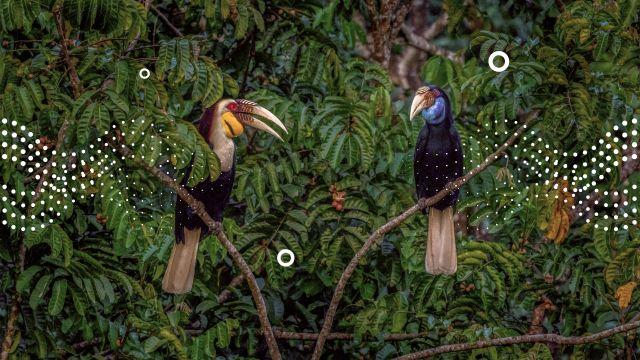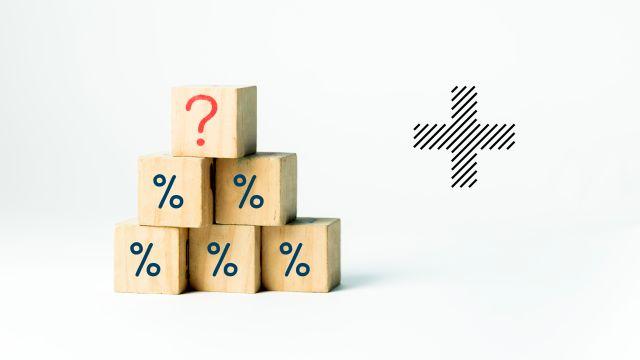How to save money — and help the planet at the same time
How to save money — and help the planet at the same time
How to save money — and help the planet at the same time

Ever wonder how you can minimize your personal wear and tear on the planet? Better yet, how you can help protect the planet and improve your bank balance at the same time? Turns out, making adjustments to your lifestyle may do just that.
Read on to learn how some small changes can help protect the planet while also saving you money.
Turn it up, turn it down
Home heating and cooling are significant contributors to greenhouse gas emissions, and — you may have noticed — your monthly expenses.
- If you use air conditioning, set it higher — or better yet, use the dehumidify function instead of cooling. Often just the drier air will keep you comfortable enough, even on relatively hot days, especially if you also have ceiling fans. According to the Department of Energy, you could lower your power bill by almost 10% by setting your AC seven to 10 degrees higher than normal.1 And turn it off completely when everyone is at work or school.
- In the winter, most people find they can live at 65 degrees with a sweater, and even cooler at night with a warm comforter. Cold-climate residents risk frozen pipes if they shut off the heat while away, but you can turn it down to as low as 50 with no danger.
Read more: How to lower your energy bill in winter
Other ways to save on utility bills while saving the planet:
- Take shorter showers.
- Turn off lights in unoccupied rooms.
- When you go out of town, unplug appliances that constantly use power even in standby mode, such as TVs and Bluetooth sound systems.
- Do less laundry by wearing clothes more than once before washing, especially in cooler seasons when you may sweat less. Wash in cold water when possible. Run your dryer less and consider line-drying your clothes. Not only will you save on energy costs, but there’s a good chance your clothes will last longer, too.
Getting around town
Driving is also a major contributor to greenhouse gas emissions — and even electric vehicles require lots of energy to manufacture and charge the batteries.
- Where possible, the most efficient and economical way to get to work is public transportation. Besides cutting back on the stress of rush-hour traffic and parking, you’ll be able to catch up on emails and texts — or sleep.
- If you don’t have the option of a bus or train to your job, look into carpools or rideshares. Explore the possibility of working from home — even one day a week could potentially reduce your bills and help the planet.
- Beyond getting to work, there are many ways to cut back on daily driving. More and more communities are building bike lanes. And a weekly ride to the supermarket or other local errands could be cheaper than your family owning an extra car.
How much can you save by driving less? A study by AAA found that owning a medium-sized SUV can cost more than 87 cents per mile when factoring in all ownership costs.2 Driving less saves not just on gas and maintenance but also insurance — and your car will last longer, which will save you money over the long term.
Buying stuff
The stuff we buy has a big impact on the planet. Processes like deforestation and mineral extraction are often required to produce the goods we use, and discarded items are often burned or buried. Cutting back on wasteful purchases will put a dent in greenhouse emissions and save you money.
- Alternatives to new wood products include secondhand furniture and composite building materials such as vinyl flooring or fiber-cement siding (which won’t rot like wood or need perpetual painting).
- Electronic devices use rare minerals that are energy-intensive to extract. You can help reduce the impact, and save cash, by keeping your electronics as long as possible. With regular software upgrades and a battery replacement or two, a phone should last many years.
Adjust your diet
What we eat is taking a bigger bite out of paychecks these days, and a lot of that food is heating up the planet. You can save money and carbon emissions by eating more consciously. One thing to keep in mind: Thanks to global supply chains, we’ve gotten used to eating anything, anytime — even perishable foods. Try to eat locally sourced fresh food as much as possible, and cook seasonally.
Final thoughts
Making just a few changes in your lifestyle can minimize your impact on the earth, while also improving your financial health. Save the planet, save money — sounds pretty good, right?
1 U.S. Department of Energy, July 2021, energy.gov/energysaver/thermostats.
2 AAA, “Your Driving Costs: How Much Are You Really Paying to Drive?” 2019.
RO2836027-0423
The content contained in this blog post is intended for general informational purposes only and is not meant to constitute legal, tax, accounting or investment advice. You should consult a qualified legal or tax professional regarding your specific situation. No part of this blog, nor the links contained therein is a solicitation or offer to sell securities. Compensation for freelance contributions not to exceed $1,250. Third-party data is obtained from sources believed to be reliable; however, Empower cannot guarantee the accuracy, timeliness, completeness or fitness of this data for any particular purpose. Third-party links are provided solely as a convenience and do not imply an affiliation, endorsement or approval by Empower of the contents on such third-party websites.
Certain sections of this blog may contain forward-looking statements that are based on our reasonable expectations, estimates, projections and assumptions. Past performance is not a guarantee of future return, nor is it indicative of future performance. Investing involves risk. The value of your investment will fluctuate and you may lose money.
Certified Financial Planner Board of Standards Inc. (CFP Board) owns the certification marks CFP®, CERTIFIED FINANCIAL PLANNER™, CFP® (with plaque design), and CFP® (with flame design) in the U.S., which it authorizes use of by individuals who successfully complete CFP Board's initial and ongoing certification requirements.
Advisory services are provided for a fee by Empower Advisory Group, LLC (“EAG”). EAG is a registered investment adviser with the Securities and Exchange Commission (“SEC”) and subsidiary of Empower Annuity Insurance Company of America. Registration does not imply a certain level of skill or training.



